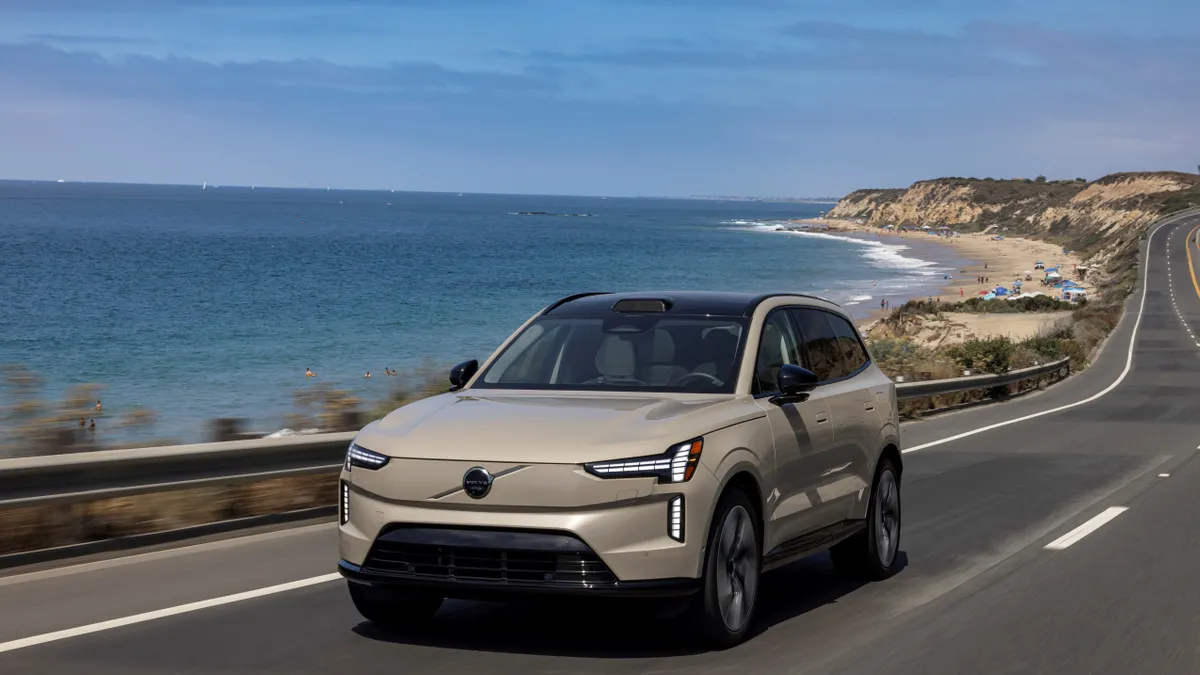Dive Brief:
- Volvo Cars is rescinding its 2021 goal to become a fully electric car company by 2030, according to a Wednesday press release.
- The automaker now expects 90% to 100% of its sales by 2030 to consist of electrified cars — a mix of battery electric and plug-in hybrid vehicles — as well as a limited number of “mild hybrid” models.
- While Volvo insisted it remains committed to a long-term ambition of full electrification and achieving net-zero greenhouse gas emissions by 2040, the company said “stronger and more stable” government policies are needed to support the transition.
Dive Insight:
Volvo hasn’t altered its long-term investment plan and product strategy, which is moving toward fully electric cars, the release stated. But a slow roll out of charging infrastructure, withdrawal of government incentives and other uncertainties created by tariffs were factors in the abandonment of the previous 2030 goal.
Jim Rowan, Volvo Cars CEO, said the company is “pragmatic and flexible” while maintaining its electrification edge over its premium peers.
“An electric car provides a superior driving experience and increases possibilities for using advanced technologies that improve the overall customer experience,” he said in the release. “However, it is clear that the transition to electrification will not be linear, and customers and markets are moving at different speeds of adoption.”
The move comes after Volvo cautioned investors about the EV slowdown during its Q2 earnings call. Executives said booked orders for EVs were down 16% in Q1.
The company is the latest automaker to alter its electrification timeline: Ford, Hyundai and VinFast have recently announced adjustments to their strategies, too.
Volvo has made progress since the 2021 announcement of the fully electric goal, however. In recent years, the automaker has launched five BEVs: the EX40, the EC40, the EX30, the EM90 and the EX90.
By 2025, Volvo expects electrified products to account for between 50% to 60% of its sales, a marginal increase from 48% in Q2 2024. Fully electric cars represented 26% of its total vehicles during the same period.













